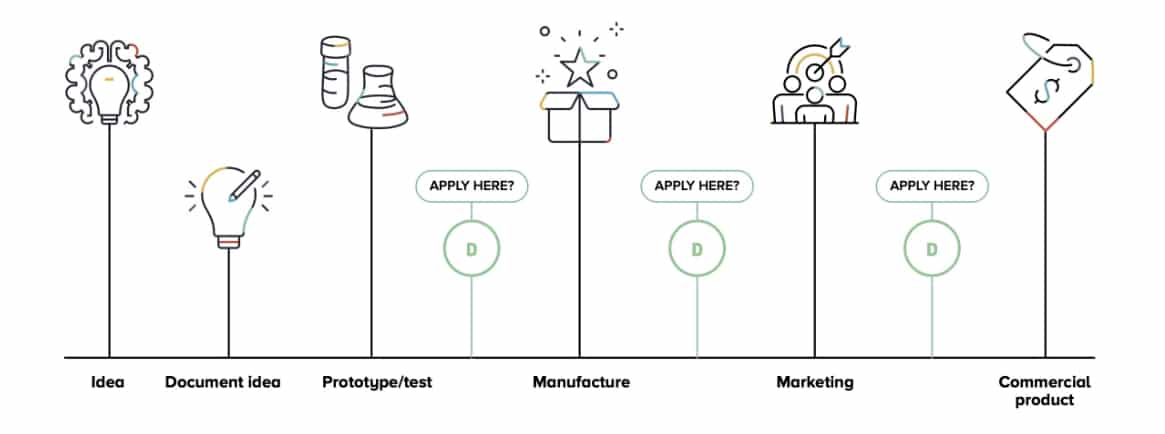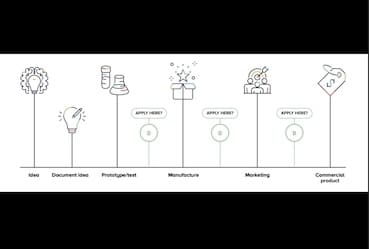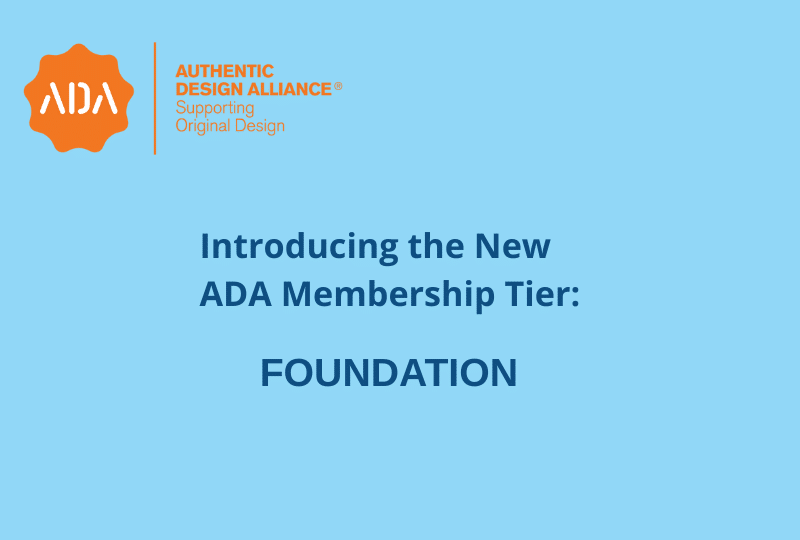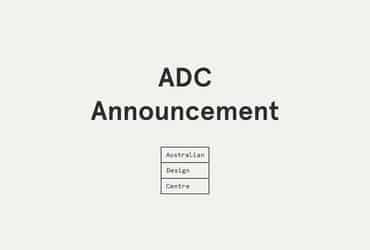Following our Melbourne event last month, we met with ADA Stakeholders and sincerely thank the 48 individuals and brands who have since contributed vital feedback on the next round of changes to IP legislation.
Our 5000-word submission was informed by contributions from independent designers, designer-makers, manufacturers, retailers, import distributors and showroom networks.
The consultation closed on August 13th and received 33 submissions from industry bodies, legal practitioners, and international IP bodies.
To read in full, find our 17-page response here.
EXECUTIVE SUMMARY
Contributors’ names have been redacted from the published report.
We have supplied IP Australia with all contacts who are happy to speak further during the finalisation of legislation, which will happen over the coming six months.
- Acknowledgement of Country
- Background on Designs Review 2018-2020
- About this consultation, an overview.
- We thank IP Australia teams for their support during our ongoing consultation over the past 5-6 years and their interest in the needs of the furnishing industry,
- Furnishing Sector Defined, who the ADA represents and summary of ADA Stakeholders (furniture, lighting, designed objects, architectural hardware, kitchen and bathroom products, 3-dimensional industrial designs for residential and commercial use.)
- ABS statistics summarise contributions to GDP by the creative sector and the furnishing industry.
- Virtual Designs – The ADA makes no submission to this proposal.
- Partial Designs – The ADA supports redefining a design so that it includes the ‘entire product’ as well as the ability to register a ‘partial design’. However, we need clarification on definitions of the protection of the partial design with the proposal defined as being ‘made as a single piece’.
- Defining a partial design – the ADA asks for clarification on how copies of the protected single piece will be managed should the copy be comprised of two or more components.
- Incremental Designs – The ADA supports the ability to protect the design during design development (three-dimensional concept, prototype, final product)—our submission advocates for a no-cost or very low-cost automated initial registration to be filed. We recommended a simplified, automated process to file the initial registration with more detailed filing to follow once the product is finalised to allow for the protection of ‘concepts’, enabling designers to determine which products are likely to have commercial success. This approach offers broader protection without requiring every concept to be fully registered.
- Statement of Newness & Distinctiveness – the ADA recommends this is removed, citing examples of registrations that have been refused as the description of the product has been deemed by IP Australia to be the same as an existing registered product, despite the design in the new application functioning in an entirely different way to that of the existing registrant.
- Post-Registration Linking – The ADA supports the ability for the initial registration to be linked to additional variations of this design as the products form a collection. We note that whilst the initial registration will benefit from the full 10-year protection, linked registrations will be protected for the duration of the initial registration. i.e., the chair registered year 1 receives ten years. Armchair linked year 2 receives eight years. Barstool linked year 4, receives 6-years.
- Length of Registration 10 years (5 years renewed for five years) – the ADA proposed the full ten years be granted outright and recommended the removal of the renewal to minimise administration and protect against designs that fail to renew.
- Filing Fees – The ADA proposed preliminary designs be automatically registered for no cost or a nominal fee to encourage practitioners to use the Designs System. We propose the cost of the overall filing fee be reduced to encourage businesses with 25, 50, 100, 200+ new designs a year to protect these objects. We also proposed fee reductions for solo practitioners and low-income businesses to support their ability to protect their designs.
- Barriers to Using the Design Registration System – Legal action to defend infringements is cost-prohibitive to small businesses and larger retail networks. Our primary concern is that whilst we encourage IP Australia to upgrade protections in line with how the furnishing design process works, the cost of litigation could be more achievable for both small and larger businesses. Given legal action is the main recourse used to defend infringements, designers and design businesses find the time, cost and emotional expense of legal recourse. The ADA recommended a Government-funded tribunal to replace the need for costly and time-consuming legal processes.
- The Word ‘Replica’ – The ADA asks for the judgement Herman Miller APAC x Matt Platt (2011) to be overturned and the removal of the ability of businesses to use the designer name, product name and brand name to market copies of original designs provided the word ‘replica’ is used in the same sentence. This is unique to the furnishing sector, enabling businesses to trade off the goodwill of the original creator and associated brand, but the word misleads customers and businesses. Despite the proposed improvements to the Designs Act, whilst the word ‘replica’ and the HMxMB (2011) ruling is upheld, IP Protections fall between the cracks. The ADA also notes that trade marking the names of every designer and every product is impractical and cost-prohibitive.
- Environmental and Sustainability Concerns – Noting that sustainable practice is a core driver for all ADA Stakeholders, we tabled examples of how the replica and copy furniture industry business model is the opposite of sustainable and how this directly feeds landfills, increases carbon footprint and uses environmentally damaging materials and processes.
- Education – The ADA makes several proposals about the need for education around the cost and simplified process slated to be introduced.
We also proposed that IP Australia invest in education driven by the ADA to assist with an increased reliance on the Designs System. - Designs-Copyright Overlap – The ADA supports the position presented by the Australian Copyright Council, NAVA and Arts Law that the overlap must be reviewed in line with industry needs.
- Copyright – The ADA notes that, unlike other creative disciplines, copyright is not freely and automatically applied to new designs, in contrast to Photography, Art, Literature, Music, Film, and Architecture. This is also contrary to many of our main trading partners (UK, EU, USA and more), where furniture copyright protects works for the creator’s lifetime plus an additional 70 years (life plus 70).
- Trade Marks – As noted above, relying on trade marking as a broader protection is not only cost-prohibitive but impractical due to the sheer volume of designers and product names many businesses represent.
- Conclusion – The ADA reinforced the need for a government-funded tribunal to replace legal action as a mechanism to encourage the furniture design industry to have faith and increase the uptake of the Design System. We note, “If nothing changes, the consensus is that lawyers will be the only beneficiaries. This unintended consequence places substantial, potentially avoidable costs on small to medium-sized creative businesses if they hold a design right and wish to enforce it.”
- Footnotes – citations and references.
To read in full, find our 17-page response here.

WHAT’S NEXT?
IP Australia will review all submissions before engaging further with businesses and individuals they have engaged with on the discussed topics to inform the policy amendments.
This process will inform the wording of proposed changes to the Designs Act and be presented to the government. If accepted, the legislation amendments must pass both houses of parliament. Should the legislation be approved, a 6-month period will pass before the new laws come into effect.
We estimate this process will take approximately 18-24 months.
CONTACT US – here if you want more information or have additional thoughts to contribute.




